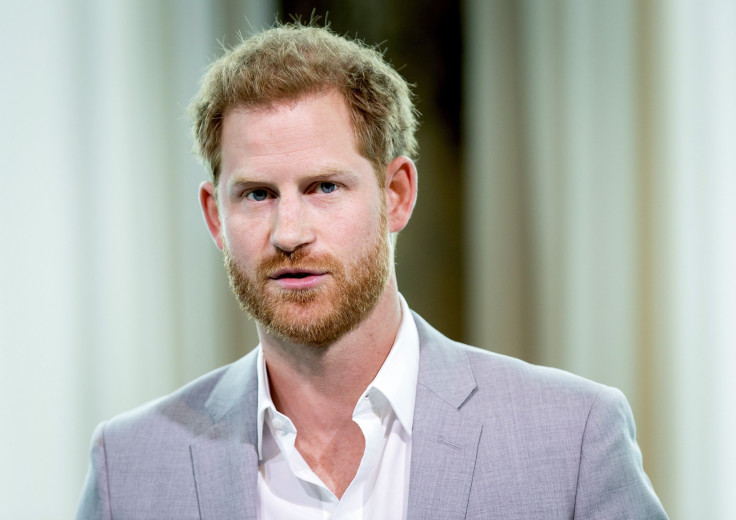Why Prince Harry 'Volunteered' To Do On-Camera Therapy For 'The Me You Can't See'
KEY POINTS
- Prince Harry volunteered to take part in a therapy session on camera in the Apple TV+ docuseries "The Me You Can't See"
- A director on the docuseries said she learned a lot about Prince Harry's mental health journey while working on the project
- Prince Harry's decision was a "great way to underscore" the importance of pushing one's self, the director says
Prince Harry volunteered to take part in on-camera therapy for his new docuseries "The Me You Can't See" to highlight the importance of trying new things and pushing one's self in one's mental health journey.
This is according to a director on Apple TV+'s "The Me You Can't See," Dawn Porter, who recently spoke to Town & Country about the Duke of Sussex's decision to show himself in a therapy session in the new mental health docuseries.
According to Porter, she and co-director Asif Kapadia learned "a lot about what Prince Harry was doing to maintain his mental wellness" as they worked closely with him for the five-part docuseries, which the prince co-produced with Oprah Winfrey. She also said that they had "access to a lot of the best research and the best medicine" through Winfrey and advisers who participated in the making of the project.
"Harry he volunteered, he was game for trying something," Porter told the magazine. "And we thought well, we have the opportunity to film this [therapy] and maybe this is something that will work for some people, maybe it won't, but the idea is that you don't tick a box and you're done, mental wellness is an ongoing pursuit."
"You have to continue to try new things and to push yourself, and his volunteering to try something was a great way to emphasize and underscore that point," she continued.
Porter also shared that the Duke of Sussex and Winfrey decided to team up for "The Me You Can't See" due to their "personal and deep feelings about destigmatizing conversations around mental health and mental wellness."
"This was really important to both of them, and so they were extremely hands on," the director said of the pair. "We had meetings every other week. We would look at footage of different possible participants. We would talk through their stories. We would talk to what each story would bring to the series, and that also led to both of them participating."
Porter shared, "They were seeing in real time how our subjects were opening up, and then they both really opened up too, so I'm really proud of that, that they were so involved and it was such a collaborative effort for our team."
In the docuseries, Prince Harry opened up about the trauma he experienced as a child and detailed how his anxiety and panic attacks worsened later in his 20s and early 30s.
He shared that he would jump in the car every time he saw a camera. He also revealed that he would start sweating and feeling that his temperature was two or three degrees higher than anything in the room.
"I was willing to drink, I was willing to take drugs. I was willing to try and do the things that made me feel less like I was feeling," Prince Harry admitted.
"But I slowly became aware, OK, I wasn't drinking Monday to Friday, but I would probably drink a week's worth in one day on a Friday or a Saturday night. I was by myself drinking not because I was enjoying it, but because I was trying to mask something," he added.
He also admitted that flying to London was a "trigger" for him and that he hadn't become aware of what he was feeling until he started therapy.
"I wasn’t aware of it at the time when I was younger, but after I started doing therapy stuff I became aware of it," he was quoted by Elle as saying. "I was like, why do I feel so uncomfortable? And of course, for me, London is a trigger, unfortunately, because of what happened to my mum, and because of what I experienced and what I saw."

© Copyright IBTimes 2025. All rights reserved.






















